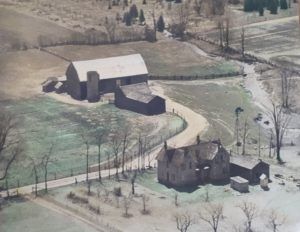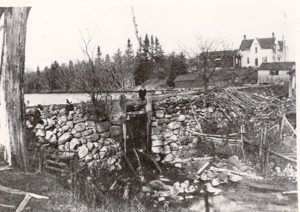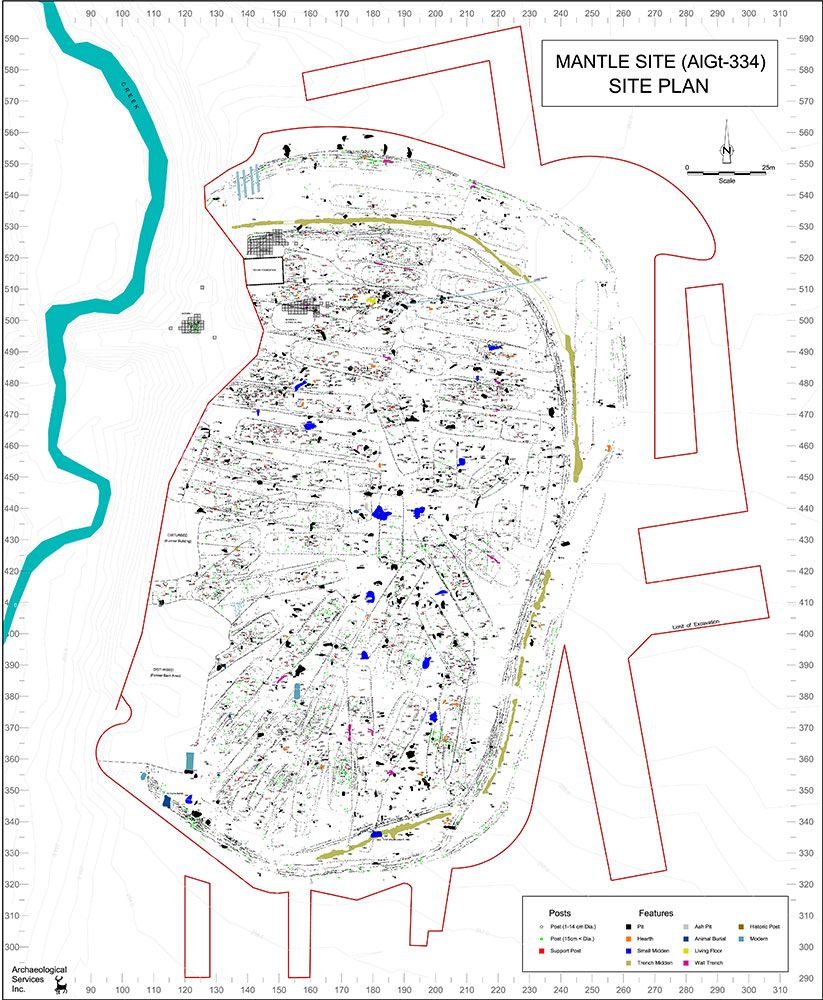Over 150,000 artifacts were uncovered at the Site – some of which you’ll see in this virtual exhibit. Excavation also revealed rows of palisade walls, which surrounded 95 longhouses (the stains of 60,000 palisade and house posts were found). There was also evidence that during the later years of occupation of the Site, there was an earthwork created along the outer palisade walls. A further 1,500 features (hearths, waste pits, etc.) were located at the Site. It’s estimated that the settlement may have had a population of 1,500 – 2,000 people.
Archaeologists also recovered artifacts that illustrated the more recent history of the property. The excavated areas had been disturbed – first by a 19th century mill and, second, by a farm.
The mill included a dam and mill pond located at Boyer’s Pond (known today as Byer’s Pond). This pond had been a popular swimming and fishing hole for many years. The dam was washed away in 1929 during torrential rains and was not rebuilt.
When the mill ceased operations, the site was converted to a farm that included all the necessities of farm life, including a farmhouse, barn, drive shed, and laneway. Over 18,000 artifacts were recovered from the surface of fields that had been disturbed over time by years of plowing and cultivation.


